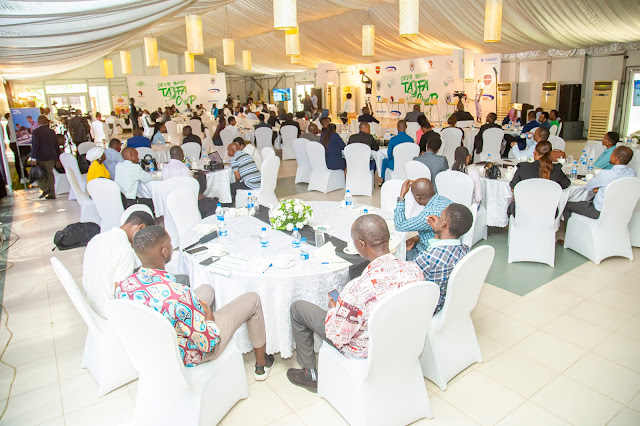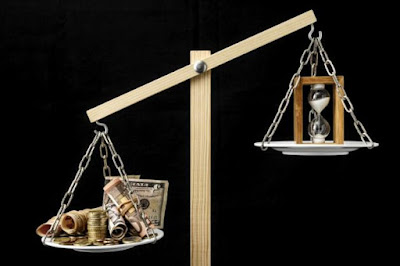Dar es Salaam 7 Oktoba 2021 – Timu 32 za mikoa za mpira wa kikapu zinatarajiwa kuchuana vikali katika mashindano ya mpira wa kikapu “CRDB Bank Taifa Cup” yanayotarajiwa kufanyika katika viwanja vya Chinangali jijini Dodoma kuanzia tarehe 5 hadi 14 Novemba 2021 ambapo jumla ya zawadi za shilingi milioni 29 zitashindaniwa.
Akitangaza zawadi hizo, Mkurugenzi Mtendaji wa Benki ya CRDB, Abdulmajid Nsekela alisema kuongezeka kwa zawadi katika CRDB Bank Taifa Cup mwaka huu kunatokana na kuongeza udhamini wa Benki hiyo katika mashindano hayo kufikia shilingi milioni 300. “Tumeona tuongeze zawadi mwaka huu ili kuongeza ushindani kwa timu na vijana watakaoshiriki. Tunaamini kuongezeka kwa zawadi kutakuwa na motisha kwa vijana kuonyesha vipaji vyao.”
Nsekela alisema Benki ya CRDB imeendelea na uamuzi wake wa kudhamini ligi hiyo ya taifa ya mpira wa kikapu kwa mara ya pili mfululizo ikiwa ni sehemu ya jitihada za benki hiyo kuwawezesha vijana wa Kitanzania kupitia michezo. Aliongeza kuwa Benki ya CRDB kupitia Sera yake ya Uwekezaji katika Jamii (CSI Policy) imekuwa ikiwekeza katika michezo ya vijana kwa kuamini kuwa inasaidia kuongeza ushiriki wao katika shughuli mbalimbali za maendeleo katika jamii.
Mgeni rasmi katika hafla ya uzinduzi wa CRDB Bank Taifa Cup 2021, Naibu Spika wa Bunge la Jumhuri ya Muungano wa Tanzania, Dkt. Tulia Ackson aliipongeza Benki ya CRDB kwa kuendelea kuwa mstari wa mbele katika kusaidia jitihada za serikali kuendeleza michezo nchini. Dkt. Tulia alisema Serikali ya Awamu ya Sita inayoongozwa na Rais Samia Suluhu Hassan imeweka kipaumbele kikubwa katika michezo kwa kutambua fursa za kiuchumi zinazotokana na sekta hiyo.
“Niwapongeze pia kwa kuona umuhimu wa kuongeza timu za wanawake zinazoshiriki CRDB Bank Taifa Cup mwaka huu kufikia 16. Kwa miaka mingi ushiriki wa wanawake katika michezo huu umekuwa chini ikilinganishwa na wavulana. CRDB Bank Taifa Cup inakwenda kubadilisha sura hii na kuwapa nguvu wasichana wote wanaotamani kushiriki katika mpira wa kikapu,” alisema Dkt. Tulia.
Dkt. Tulia pia alizipongeza kampuni na taasisi za GSM, Sanlam, Azam, PSSF, Tulia Trust na Chuo Kikuu cha Dodoma (UDOM) kwa kuungana na Benki ya CRDB kusaidia kuandaa mashindano hayo ambayo yamepewa kaulimbiu ya “Ni Zaidi ya Game, Ni Maisha,” ikionyesha namna ambavyo mpira wa kikapu unavyoweza kutumika kutengeneza fursa za ajira kwa vijana na kuwawezesha kiuchumi.
Kwa upande wake Rais wa Shirikisho la Mpira wa Kikapu Tanzania(TBF), Phares Magesa aliishukuru Benki ya CRDB kwa kuendelea na udhamini wa ligi hiyo huku akibainisha kuwa udhamini wa Benki hiyo kubwa hapa nchini umesaidia kuongeza hamasa na mapenzi ya mpira wa kikapu kwa vijana kama ilivyo kwa mpira wa miguu na michezo mingine.
Phares alimueleza Dkt. Tulia kuwa mbali na udhamini unaotolewa na Benki ya CRDB, benki hiyo imekuwa ikishiriki katika kila hatua kuhakikisha mashindano hayo yanafakiwa ikiwamo na kusaidia kushawi taasisi nyengine kushiriki kufanikisha mashindano hayo. “Tunapowapongeza GSM, Sanlam, Azam, PSSF, Tulia Trust na Chuo Kikuu cha Dodoma (UDOM) kwa kudhamini mashindano haya tuwapongeze Benki ya CRDB mara mbili kwa kuwashawishi kushirikiana nasi.”
Naye Msimamizi wa vipindi vya michezo Azam TV, Michael Maluwe amewataka Watanzania kuanza kufuatilia CRDB Bank Taifa Cup 2021 kupitia chaneli ya michezo ya Azam Sports 2, ambapo kimeanzishwa kipindi maalum kuelekea mashindano hayo ya mpira wa kikapu. “Azam TV itaweka kambi Dodoma kuwaletea burudani Watanzania wote kuelekea mashindano haya, niwakaribishe Watanzania tujiunge na Azam TV ili kuwashangilia vijana wetu,” alisema Maluwe.
Mashindano ya CRDB Bank Taifa Cup mwaka jana yalifanyika mkoa wa Dodoma katika viwanja vya Chinangali na uwanja wa Jamhuri ambapo vijana 900 kutoka kutoka mikoa yote Tanzania bara na visiwani walishiriki. Katika mashindano hayo timu ya mpira wa kikapu ya mkoa wa Mbeya iliibuka mshindi katika michuano hiyo.
Naibu Spika wa Bunge la Tanzania, Dkt. Tulia Ackson akirusha mpira golini kuashiria uzinduzi wa mashindano ya CRDB Bank Taifa Cup 2021, yanayotarajiwa kuanza Novemba 5, kwenye viwanja vya Chinangali, jijini Dodoma, Uzindizi huo umefanyika leo kwenye hoteli ya Serena jijini Dar es salaam. Wanaoshuhudia pichani kutoka kushoto ni Mkurugenzi Mtendaji wa Benki ya CRDB, Abdulmajid Nsekela, Afisa Biashara Mkuu wa GSM, Allan Chonjo, Rais wa Shirikisho la Mpira wa Kikapu Tanzania, Phares Magesa na Mwenyekiti wa CRDB Bank Foundation, Martin Warioba. Picha zote na Othman Michuzi.
-- Sent from Gmail Mobile
Akitangaza zawadi hizo, Mkurugenzi Mtendaji wa Benki ya CRDB, Abdulmajid Nsekela alisema kuongezeka kwa zawadi katika CRDB Bank Taifa Cup mwaka huu kunatokana na kuongeza udhamini wa Benki hiyo katika mashindano hayo kufikia shilingi milioni 300. “Tumeona tuongeze zawadi mwaka huu ili kuongeza ushindani kwa timu na vijana watakaoshiriki. Tunaamini kuongezeka kwa zawadi kutakuwa na motisha kwa vijana kuonyesha vipaji vyao.”
Nsekela alisema Benki ya CRDB imeendelea na uamuzi wake wa kudhamini ligi hiyo ya taifa ya mpira wa kikapu kwa mara ya pili mfululizo ikiwa ni sehemu ya jitihada za benki hiyo kuwawezesha vijana wa Kitanzania kupitia michezo. Aliongeza kuwa Benki ya CRDB kupitia Sera yake ya Uwekezaji katika Jamii (CSI Policy) imekuwa ikiwekeza katika michezo ya vijana kwa kuamini kuwa inasaidia kuongeza ushiriki wao katika shughuli mbalimbali za maendeleo katika jamii.
Mgeni rasmi katika hafla ya uzinduzi wa CRDB Bank Taifa Cup 2021, Naibu Spika wa Bunge la Jumhuri ya Muungano wa Tanzania, Dkt. Tulia Ackson aliipongeza Benki ya CRDB kwa kuendelea kuwa mstari wa mbele katika kusaidia jitihada za serikali kuendeleza michezo nchini. Dkt. Tulia alisema Serikali ya Awamu ya Sita inayoongozwa na Rais Samia Suluhu Hassan imeweka kipaumbele kikubwa katika michezo kwa kutambua fursa za kiuchumi zinazotokana na sekta hiyo.
“Niwapongeze pia kwa kuona umuhimu wa kuongeza timu za wanawake zinazoshiriki CRDB Bank Taifa Cup mwaka huu kufikia 16. Kwa miaka mingi ushiriki wa wanawake katika michezo huu umekuwa chini ikilinganishwa na wavulana. CRDB Bank Taifa Cup inakwenda kubadilisha sura hii na kuwapa nguvu wasichana wote wanaotamani kushiriki katika mpira wa kikapu,” alisema Dkt. Tulia.
Dkt. Tulia pia alizipongeza kampuni na taasisi za GSM, Sanlam, Azam, PSSF, Tulia Trust na Chuo Kikuu cha Dodoma (UDOM) kwa kuungana na Benki ya CRDB kusaidia kuandaa mashindano hayo ambayo yamepewa kaulimbiu ya “Ni Zaidi ya Game, Ni Maisha,” ikionyesha namna ambavyo mpira wa kikapu unavyoweza kutumika kutengeneza fursa za ajira kwa vijana na kuwawezesha kiuchumi.
Kwa upande wake Rais wa Shirikisho la Mpira wa Kikapu Tanzania(TBF), Phares Magesa aliishukuru Benki ya CRDB kwa kuendelea na udhamini wa ligi hiyo huku akibainisha kuwa udhamini wa Benki hiyo kubwa hapa nchini umesaidia kuongeza hamasa na mapenzi ya mpira wa kikapu kwa vijana kama ilivyo kwa mpira wa miguu na michezo mingine.
Phares alimueleza Dkt. Tulia kuwa mbali na udhamini unaotolewa na Benki ya CRDB, benki hiyo imekuwa ikishiriki katika kila hatua kuhakikisha mashindano hayo yanafakiwa ikiwamo na kusaidia kushawi taasisi nyengine kushiriki kufanikisha mashindano hayo. “Tunapowapongeza GSM, Sanlam, Azam, PSSF, Tulia Trust na Chuo Kikuu cha Dodoma (UDOM) kwa kudhamini mashindano haya tuwapongeze Benki ya CRDB mara mbili kwa kuwashawishi kushirikiana nasi.”
Naye Msimamizi wa vipindi vya michezo Azam TV, Michael Maluwe amewataka Watanzania kuanza kufuatilia CRDB Bank Taifa Cup 2021 kupitia chaneli ya michezo ya Azam Sports 2, ambapo kimeanzishwa kipindi maalum kuelekea mashindano hayo ya mpira wa kikapu. “Azam TV itaweka kambi Dodoma kuwaletea burudani Watanzania wote kuelekea mashindano haya, niwakaribishe Watanzania tujiunge na Azam TV ili kuwashangilia vijana wetu,” alisema Maluwe.
Mashindano ya CRDB Bank Taifa Cup mwaka jana yalifanyika mkoa wa Dodoma katika viwanja vya Chinangali na uwanja wa Jamhuri ambapo vijana 900 kutoka kutoka mikoa yote Tanzania bara na visiwani walishiriki. Katika mashindano hayo timu ya mpira wa kikapu ya mkoa wa Mbeya iliibuka mshindi katika michuano hiyo.
Naibu Spika wa Bunge la Tanzania, Dkt. Tulia Ackson akirusha mpira golini kuashiria uzinduzi wa mashindano ya CRDB Bank Taifa Cup 2021, yanayotarajiwa kuanza Novemba 5, kwenye viwanja vya Chinangali, jijini Dodoma, Uzindizi huo umefanyika leo kwenye hoteli ya Serena jijini Dar es salaam. Wanaoshuhudia pichani kutoka kushoto ni Mkurugenzi Mtendaji wa Benki ya CRDB, Abdulmajid Nsekela, Afisa Biashara Mkuu wa GSM, Allan Chonjo, Rais wa Shirikisho la Mpira wa Kikapu Tanzania, Phares Magesa na Mwenyekiti wa CRDB Bank Foundation, Martin Warioba. Picha zote na Othman Michuzi.
Naibu Spika wa Bunge la Tanzania, Dkt. Tulia Ackson (katikati) akiwa pamoja na Mkurugenzi Mtendaji wa Benki ya CRDB, Abdulmajid Nsekela (wapili kushoto), Afisa Biashara Mkuu wa GSM, Allan Chonjo (wakwanza kushoto), Rais wa Shirikisho la Mpira wa Kikapu Tanzania, Phares Magesa (wapili kulia) na Mwenyekiti wa CRDB Bank Foundation, Martin Warioba (wakwanza kulia) wakiwa wameshikilia mpira wakati wa uzinduzi wa mashindano ya CRDB Bank Taifa Cup 2021, yanayotarajiwa kuanza Novemba 5, kwenye viwanja vya Chinangali, jijini Dodoma, Uzindizi huo umefanyika leo kwenye hoteli ya Serena jijini Dar es salaam.
-- Sent from Gmail Mobile
































